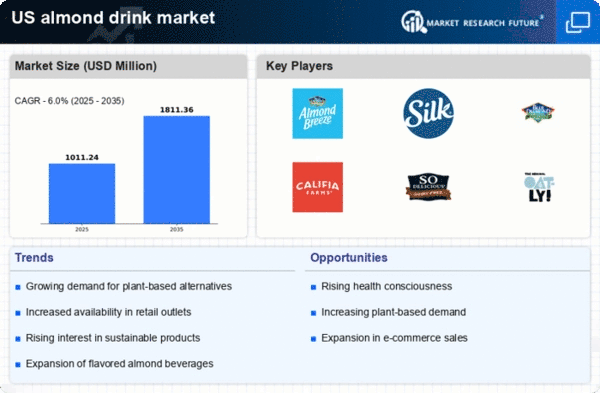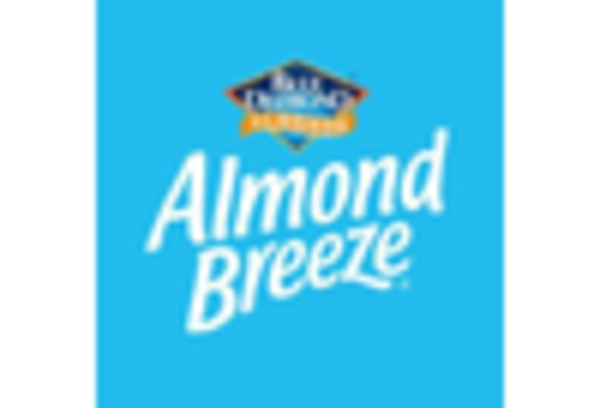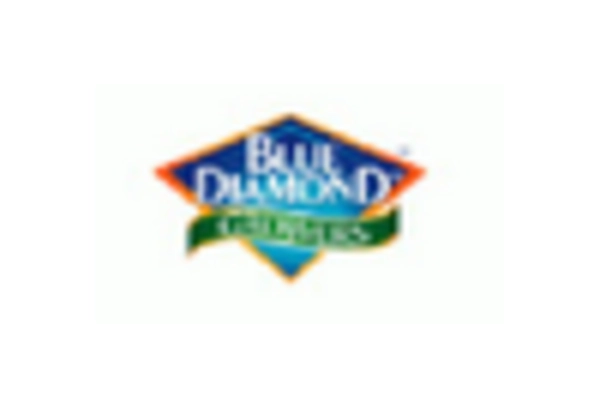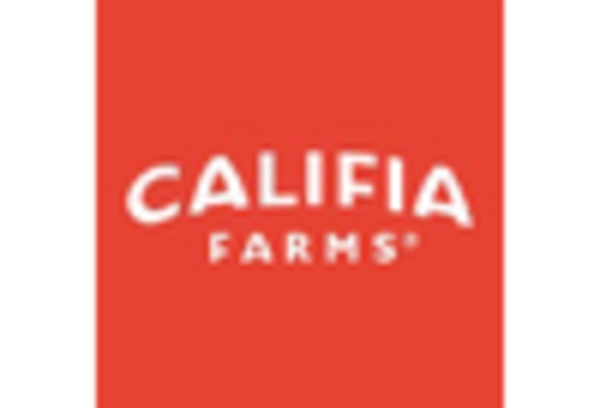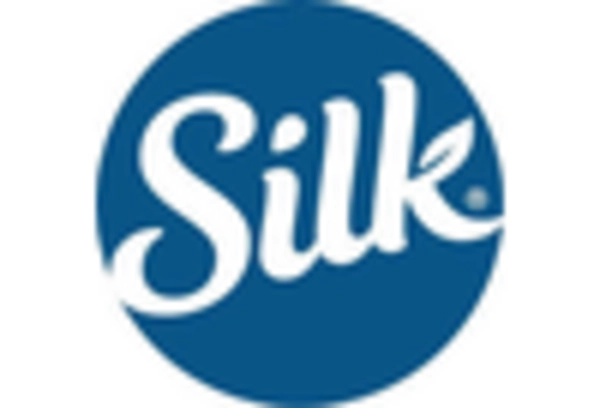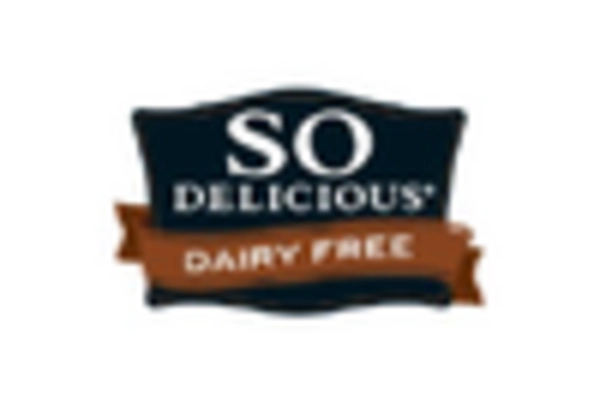Innovative Marketing Strategies
The almond drink market is increasingly influenced by innovative marketing strategies that resonate with target demographics. Brands are leveraging social media platforms and influencer partnerships to promote their products, creating engaging content that highlights the versatility and benefits of almond drinks. In 2025, it is anticipated that marketing expenditures in the almond drink market will increase by 20%, reflecting the industry's commitment to capturing consumer attention. This strategic focus on digital marketing not only enhances brand visibility but also fosters community engagement among consumers. As brands continue to adapt their marketing approaches to align with consumer preferences, the almond drink market is likely to see sustained growth and brand loyalty.
Growing Interest in Nutritional Benefits
The almond drink market benefits from a heightened interest in the nutritional advantages associated with almond-based beverages. Almond drinks are often fortified with vitamins and minerals, such as calcium and vitamin D, making them an attractive option for consumers seeking to enhance their dietary intake. In 2025, approximately 45% of consumers in the US are expected to choose almond drinks for their perceived health benefits, which include lower cholesterol levels and improved heart health. This trend suggests that brands focusing on the nutritional profile of their products may find a competitive edge in the almond drink market. As consumers become more informed about the health implications of their dietary choices, the demand for almond drinks is likely to continue its upward trajectory.
Increased Availability in Retail Channels
The almond drink market is witnessing enhanced accessibility through a proliferation of retail channels. Supermarkets, health food stores, and online platforms are increasingly stocking a diverse range of almond drink products, making it easier for consumers to purchase these beverages. In 2025, it is estimated that over 60% of almond drink sales in the US will occur through retail outlets, highlighting the importance of distribution strategies in driving market growth. This increased availability not only caters to the convenience-seeking consumer but also allows brands to reach a broader audience. As retailers expand their offerings, the almond drink market is poised to capture a larger share of the beverage market, appealing to both existing and new customers.
Rising Demand for Plant-Based Alternatives
The almond drink market experiences a notable surge in demand as consumers increasingly gravitate towards plant-based alternatives. This shift is largely driven by a growing awareness of health benefits associated with plant-based diets, which are perceived to be lower in calories and saturated fats compared to dairy. In 2025, the almond drink market is projected to reach a valuation of approximately $1.5 billion in the US, reflecting a compound annual growth rate (CAGR) of around 10% over the next five years. This trend indicates a significant opportunity for brands to innovate and expand their product lines to cater to the evolving preferences of health-conscious consumers. As more individuals adopt vegan or flexitarian lifestyles, the almond drink market is likely to benefit from this transition, positioning itself as a staple in the beverage sector.
Environmental Awareness and Ethical Consumption
The almond drink market is significantly impacted by rising environmental awareness among consumers. As individuals become more conscious of their ecological footprint, there is a growing preference for products that are perceived as sustainable and ethically sourced. Almond drinks, often marketed as a more environmentally friendly alternative to dairy, appeal to this demographic. In 2025, it is estimated that around 30% of consumers in the US will prioritize sustainability when choosing beverages, which could drive further growth in the almond drink market. Brands that emphasize their commitment to sustainable practices, such as responsible sourcing and eco-friendly packaging, may find themselves at a competitive advantage. This trend indicates a shift towards ethical consumption, which is likely to shape the future landscape of the almond drink market.


